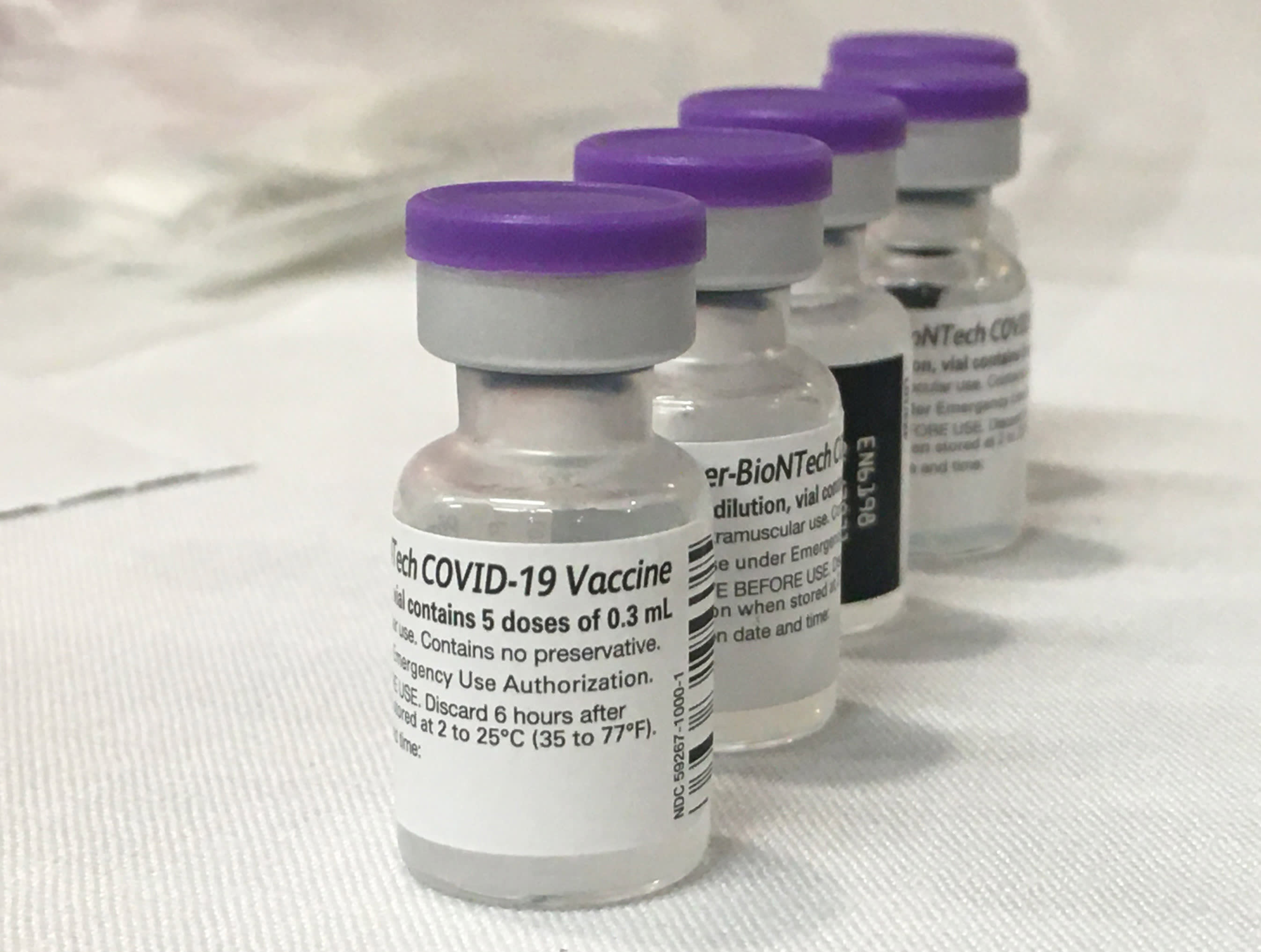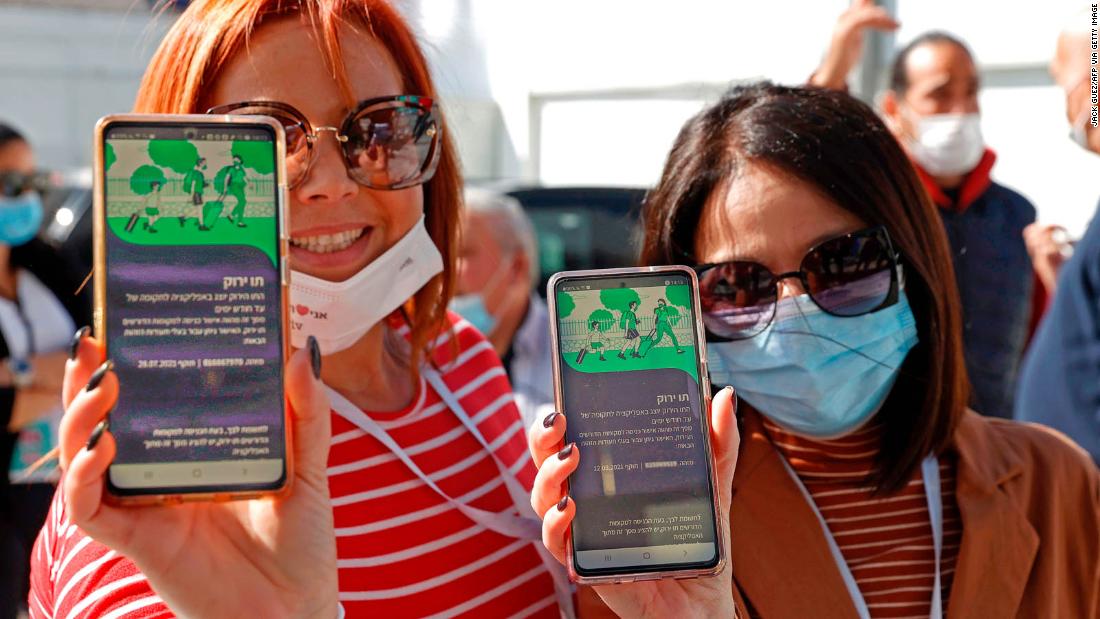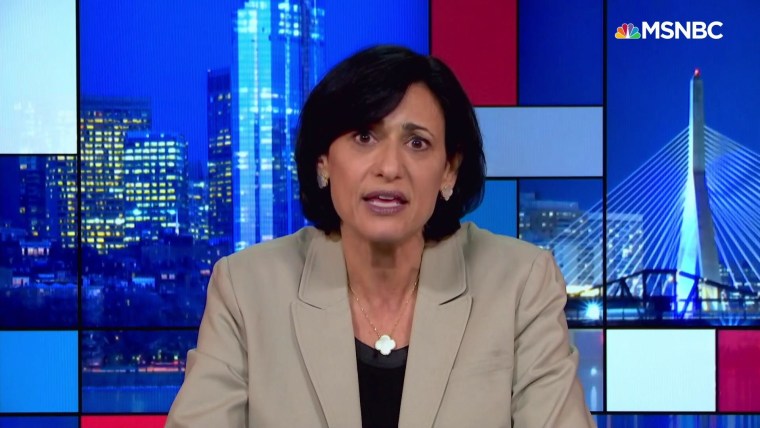BEIJING — Health officials in China say six more people have become ill with COVID-19 in a southwestern Chinese city on the border with Myanmar. That brings the confirmed total in the Yunnan province city of Ruili over the past two days to at least 15, including at least four Myanmar citizens.
The National Commission said Thursday that 23 other people have tested positive for the coronavirus without showing symptoms of illness.
Officials say more than 20,000 tests have been administered so far. City authorities plan to test Ruili's entire population of about 210,000 people, and require them to quarantine at home for one week.
The residential compound where the infections were found has already been locked down.
China has largely eradicated local transmission of coronavirus and takes strict measures whenever a new cluster emerges.
___
THE VIRUS OUTBREAK:
VACCINES: More than 96 million people, or 28.9% of the U.S. population, have received at least one dose of a coronavirus vaccine, according to the Centers for Disease Control and Prevention. Some 53.4 million people, or 16.1% of the population, have completed their vaccination.
CASES: The seven-day rolling average for daily new cases in the U.S. increased over the past two weeks from 54,799 on March 16 to 66,875 on Tuesday, according to Johns Hopkins University.
DEATHS: The seven-day rolling average for daily new deaths in the U.S. decreased over the past two weeks decreased from 1,275 on March 16 to 994 on Tuesday, according to Johns Hopkins University.
— COVID-19 pushed total US deaths beyond 3.3 million last year
— Pfizer says vaccine is safe in kids as young as age 12
— Follow AP's pandemic coverage at https://ift.tt/35k8pHx, https://ift.tt/3ajhaVd and https://ift.tt/2wrCaXK
___
ANCHORAGE, Alaska — People magazine reports that former Alaska Gov. Sarah Palin says she tested positive for the coronavirus and is urging people to guard themselves in the pandemic, such as wearing masks in public.
It is not clear when Palin tested positive, but the magazine quotes her as saying other members of her family tested positive, too.
According to the magazine, Palin says her case shows that "anyone can catch this." She urges vigilance and says people should "use common sense" to avoid spreading the coronavirus and other viruses.
___
OLYMPIA, Wash. — Washington state is opening eligibility for coronavirus vaccinations to all residents age 16 and older starting April 15.
Gov. Jay Inslee had previously resisted expanding eligibility, saying he wanted to avoid doing that too quickly into order to ensure those most at risk were vaccinated first. He had noted that eligibility didn't guarantee vaccination right away and would depend on supply.
But Inslee said Wednesday that the federal government's assurances of increased allocations, plus concerns about rising cases in many parts of the state, led to the decision to open up eligibility.
The federal government has directed states to make all adults eligible for vaccination by May 1, but most states have earlier plans, with more than a dozen opening eligibility to all adults this week.
___
QUEBEC CITY — The Quebec government is putting three cities in the Canadian province into lockdown beginning Thursday following a sharp rise in coronavirus infections.
Quebec Premier Francois Legault announced Wednesday that schools and non-essential businesses will close and the curfew will be moved ahead to 8 p.m. in Quebec City, Levis and Gatineau. He says the situation is alarming.
The new restrictions do not affect the Montreal area.
Canada's most populous province of Ontario is expected to announce new pandemic restrictions Thursday amid a new wave of infections.
___
ATLANTA — Georgia Gov. Brian Kemp is rolling back pandemic restrictions amid warnings from federal officials of a "fourth surge" of coronavirus cases if states continue relaxing precautions.
The governor's office says Kemp signed an executive order Wednesday that will end a ban on large gatherings, eliminate shelter-in-place requirements and reduce any remaining distance requirements at restaurants, bars, movie theaters and fitness classes. The rollback starts April 8.
Earlier this week, President Joe Biden and the head of the CDC warned that too many Americans are prematurely declaring victory against the virus. They appealed for mask requirements and other restrictions to be maintained or restored.
Kemp has said loosening restrictions is a critical step in restoring normalcy and ensuring businesses survive.
Georgia last week made all residents over age 16 eligible for vaccination against the coronavirus.
___
SEATTLE — Amazon plans to have its employees return to the office by fall as the tech giant transitions away from the remote work it implemented for many workers due to the coronavirus pandemic.
The company had previously given its return-to-office date as June 30, but questions remained as to whether the company would allow some of its 60,000 Seattle-area office employees to continue working from home part time.
The Seattle Times reports the company told employees Tuesday it is planning a "return to an office-centric culture as our baseline."
Amazon and Microsoft were among the first large companies to mostly shutter their main offices in the Seattle area during the first COVID-19 outbreak in March 2020.
Amazon spokesperson Jose Negrete said the company will not require office workers to receive a COVID-19 vaccine before they return, but is encouraging employees and contractors to get vaccinated as soon as they are eligible.
___
JOHNSTON, Iowa — Facing an uptick in new coronavirus cases and a hesitancy among a significant portion of the population to get the vaccine Iowa Gov. Kim Reynolds is pushing to convince residents that getting a shot will help return life to normal.
Reynolds faces a state where virus activity has increased in recent weeks specifically among spring break travelers aged 18 to 29. About a third of the state's adult population, roughly 800,000 people, will not commit to getting a vaccine which is prompting Reynolds to plead with them to consider it for everyone's sake.
State health data shows 555 new positive cases in the past 24 hours and no additional deaths reported. Iowa has had 5,729 COVID-19 related deaths in the past year.
Reynolds said Iowa is expected to get nearly 161,000 vaccine doses next week, the largest weekly supply so far. That will enable the state to open vaccination appointments broadly to all adults beginning Monday although a few counties already have expanded their vaccination eligibility.
___
KANSAS CITY, Kan. — Students lined up outside schools in Kansas City, Kansas, for the first time in more than a year as in-person classes resumed in one of the last districts in the state still learning mostly virtually because of the COVID-19 pandemic.
Wednesday is the date lawmakers set for public schools to begin offering in-person classes in a bill that is awaiting Democratic Gov. Laura Kelly's signature. Most Kansas schools already returned to in-person classes, but the Kansas City, Kansas, area was particularly hard hit by the pandemic.
The district moved up the date for the rest of the students to return from April 5 in part because of the legislation, although spokesman Edwin Birch said it already had been moving in that direction.
Some who filed through the doors of the 1,700-student Wyandotte County High School lost grandparents to the coronavirus, took on part-time jobs to support their families and came dangerously close to dropping out.
School Principal Mary Stewart said the school implemented measures to keep the virus at bay. Those included plastic shields on desks, assigned seating, staggered passing periods and rolling dismissals.
___
PROVIDENCE, R.I. — The Rhode Island Department of Health reports more than 560 new confirmed cases of the coronavirus and a daily positivity rate from the previous day of about 2.5%.
The state also reported two more virus-related deaths pushing the total reported fatalities to 2,619.
Of the new cases, 500 were people who tested positive for the first time on Tuesday, the highest one-day total since early February. The remainder tested positive for the first time on previous days.
The seven-day rolling average of daily new cases in Rhode Island declined over the past two weeks, going from about 353 on March 15 to 347 on Tuesday, according to statistics from Johns Hopkins.
There have now been more than 137,000 known cases in the state.
___
PHOENIX — Arizona reported 733 additional confirmed COVID-19 cases and 26 more deaths but officials said about 200 of the additional cases were from records cleanups involving cases occurring over the entire pandemic.
The state's coronavirus dashboard said pandemic totals increased to 841,811 cases and 16,967 deaths.
Department of Health Services spokesman Steve Elliott said of the 733 additional cases, 202 were cases newly reported for Apache and Navajo counties in northeastern Arizona after officials reviewed records provided by neighboring New Mexico where facilities tested or treated Arizona residents.
Arizona's seven-day rolling averages of daily new cases dropped from 868.3 on March 15 to 547.7 two weeks later on Monday while the average of daily deaths dropped from 35.4 to 20.4 during the same period, according to Johns Hopkins University data.
___
TRENTON, N.J. — Health Commissioner Judy Persichilli said New Jersey will see a nearly 12% increase in the number of vaccines next week, from 494,000 to 551,000 doses.
Johnson & Johnson vaccines will see the biggest bump among the three shots being delivered, climbing from about 52,000 this week to 131,000 next week.
The increase coincides with what Democratic Gov. Phil Murphy had predicted would be "quantum leap" in the number of vaccines around Easter, which is Sunday.
___
PARIS — French President Emmanuel Macron announced a three-week nationwide school closure and a one month domestic travel ban to fight the spread of the coronavirus.
In a televised address to the nation Wednesday night, Macron says efforts are needed as "the epidemic is accelerating." The move is a departure from the government's policy in recent months, which has focused on regionalized restrictions. School closures were seen as a last resort.
Paris hospital officials warned they'd have to start refusing patients for lack of space. The total number of COVID-19 patients in intensive care in France surged past 5,000 on Tuesday, the first time in 11 months the figure has been that high.
Previous nationwide lockdowns in France were in March and October 2020.
___
CHICAGO — Chicago officials are warning if the number of coronavirus cases keep climbing, they'll stop letting baseball fans into Wrigley Field, along with limits on bars and restaurants.
The city's Office of Emergency Management and Communications made the announcement a day before Thursday's Opening Day for the Chicago Cubs at Wrigley Field. Wrigley and Guaranteed Rate Field, home of the White Sox, can allow up to 25% of their capacity when they open for fans for the first time since 2019.
Illinois Department of Public Health officials on Tuesday reported 2,404 coronavirus cases, including 17 more deaths. More than 1.2 million residents have contracted the virus and there's been 21,273 confirmed deaths.
Health officials say hospitalizations have increased almost daily since falling to a one-year low on March 12. Hospitalizations totaled 1,396 beds on Monday, the most since late February.
The state reported more than 2.1 million Illinois residents have been fully vaccinated, about 16.6% of the population.
___
SIOUX FALLS, S.D. — South Dakota announced it will open COVID-19 vaccinations to anyone over age 16 on Monday.
Gov. Kristi Noem's announcement came amid a recent uptick in cases statewide. Over the past two weeks, the rolling average number of daily new cases has increased by 34%, according to Johns Hopkins University.
State health officials say 43% of people have received at least one dose of a vaccine and about 65% are fully vaccinated.
As those over 16 become eligible, more than 400,000 people in the state can receive a vaccine.
___
ANKARA, Turkey — Turkey's number of confirmed coronavirus cases reached 39,302, a record high for a second straight day.
The Health Ministry reported 152 more deaths, pushing the confirmed death toll to 31,537. The total number of confirmed infections stands at 3.3 million.
On Monday, Turkish President Recep Tayyip Erdogan's government re-imposed restrictions, including weekend lockdowns, amid a sharp increase in the number of infections less than a month after the measures were relaxed. The government has also announced restrictions over the upcoming Muslim holy month of Ramadan.
Let's block ads! (Why?)
"virus" - Google News
April 01, 2021 at 08:07AM
https://ift.tt/39x1koR
The Latest: Magazine says Palin tests positive for virus - Minneapolis Star Tribune
"virus" - Google News
https://ift.tt/2OagXru














